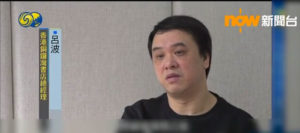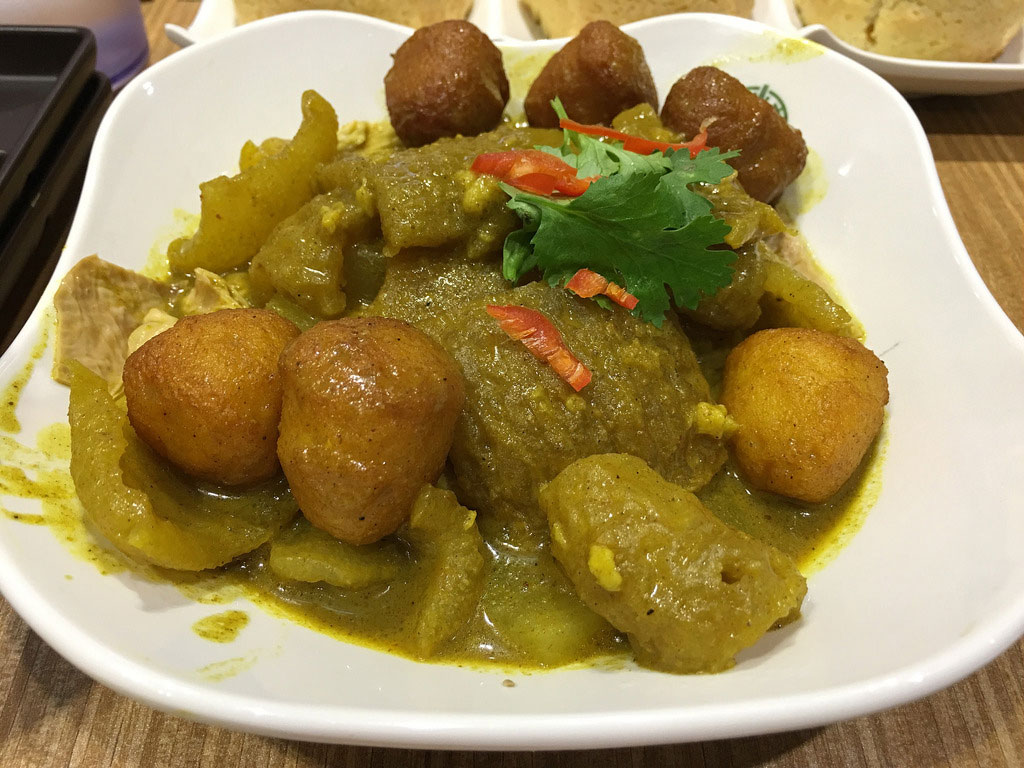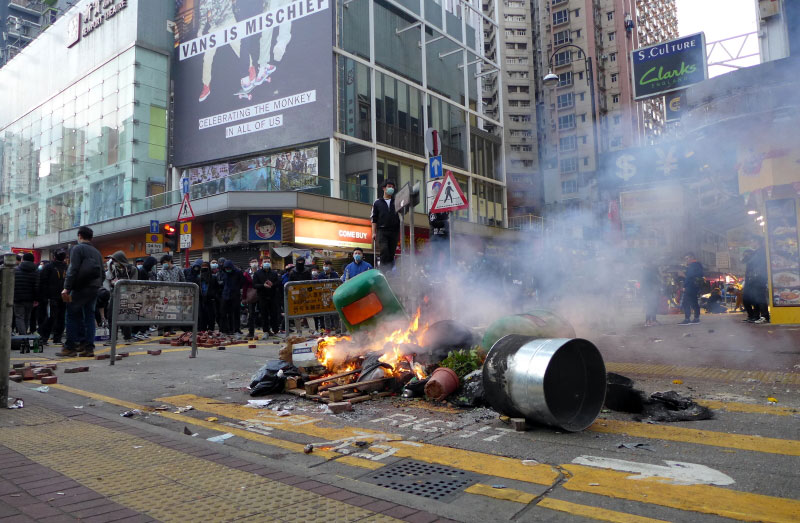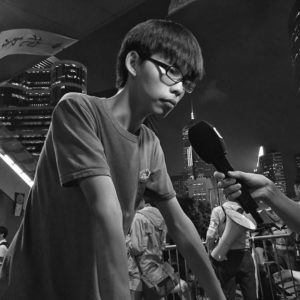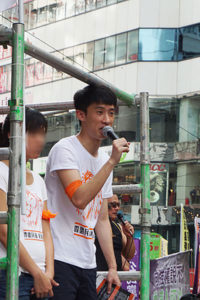The year in Hong Kong was marked by interventions from Beijing to extend its control over the Special Administrative Region and expressions of dissent led by pro-democracy and localist groups — a continuing legacy of the post-Umbrella Movement 雨傘運動 era. At stake is whether the authoritarian regime in Beijing can suppress dissent in the territory while preserving the framework of the rule of law and civil liberties promised in the Hong Kong Basic Law. The result appears to be a neverending game of whack-a-mole, with Beijing smacking down every act of resistance on a case-by-case basis. However, there are also signs that Beijing is increasingly inclined to solve the problem by dispensing with the rule of law and civil liberties altogether.
The new year began with the news that a fifth Hong Kong-based bookseller, Lee Bo 呂波, had disappeared. (See Chapter 7, ‘Policing the Borders: Hong Kong Conundrums’, and the China Story Yearbook 2015: Pollution, Information Window ‘The Causeway Bay Books Incident’) The bookseller’s detention in the mainland to assist authorities with certain investigations was only confirmed months later. Four of the five abducted booksellers were returned to Hong Kong during the course of the year. (Gui Minhai, a Swedish citizen abducted from his home in Thailand, remains incommunicado in detention on the mainland.) The abductions in Hong Kong were a stunning breach of the ‘One Country, Two Systems’ 一國兩制 principle, shocking even Hong Kong’s pro-Beijing administration, with Chief Executive CY Leung 梁振英 calling it ‘unacceptable’ for mainland legal agencies to be operating in Hong Kong. After being allowed to return to Hong Kong in June, one of the booksellers, Lam Wing-kee 林榮基, defied mainland authorities by speaking about his ordeal and then leading thousands of people on a protest march.
The eve of the Chinese New Year saw the first major protests in Hong Kong for 2016 — and the most violent scenes on Hong Kong’s streets in many years. In Hong Kong, authorities have traditionally turned a blind eye to unlicensed street vendors selling popular snacks such as fishballs 魚蛋 as part of the Lunar New Year markets during the festive season. However, on Chinese New Year’s day, 8 February 2016, officers from Hong Kong’s Food and Environmental Hygiene Department attempted to shut down vendors operating in the Mong Kok district — notably one of the ‘occupied’ sites during 2014’s Umbrella Movement and a scene of frequent protest activities since then. The localist group Hong Kong Indigenous 本土民主前線 called on their supporters through social media to gather in Mong Kok to ‘protect’ the vendors. As the Hong Kong–born restaurateur Alan Yau — founder of Wagamama — told The Guardian, fishballs are a quintessential Hong Kong working-class food, and the street stalls where they’re sold ‘represent the values of entrepreneurship’ and even ‘liberal democracy’ itself. ‘Anthropologically,’ Yau said, ‘they mean more than a $5 skewer with curry satay sauce.’
Confrontations between protesters and hygiene officers led to police being called in and things becoming violent. Protesters set fire to rubbish bins and prised up more than 2,000 brick pavers to throw at police — some of whom promptly threw them right back. Police also responded with batons and pepper spray, and one officer even fired two live rounds from his service revolver as warning shots — a deeply shocking act in Hong Kong where the use of guns (by criminals or police) is almost unheard of. The violence lasted for more than ten hours before order was restored and, with 124 people injured (including over eighty police officers) and eighty-six arrests, was the worst in Hong Kong since the Cultural Revolution–era riots of 1967 (when months of rioting left fifty-one dead and 832 injured). The Hong Kong government referred to the incident as the Mong Kok Riot 旺角暴动, whereas some media, including social media sympathetic to the vendors, dubbed it the Fishball Revolution 鱼蛋革命.
September saw the first elections for Hong Kong’s Legislative Council 香港特別行政區立法會 since the Umbrella Movement. In advance of those elections, and seemingly at the behest of Beijing in response to the rising localist movement represented by parties such as Hong Kong Indigenous, the Electoral Affairs Commission 選舉管理委員會 (EAC) carried out political screening of candidates. All candidates were asked to sign a form declaring their adherence to the principle set out in the Basic Law that Hong Kong is an inalienable part of China. Edward Leung 梁天琦 of Hong Kong Indigenous signed the declaration but the EAC banned him from running because its members did not believe the sincerity of his declaration. A number of other candidates were disqualified on similar grounds. This incident raised real questions about the fairness and legitimacy of the electoral process.
The record turnout for the elections — fifty-eight percent of registered voters — was clear evidence of energised political engagement among Hong Kong’s populace. Pan-democrats won the majority of the popular vote (a record high of approximately sixty percent). But the ‘functional constituency’ system ensured that establishment parties still retained majority control of the legislature, with pro-Beijing parties taking forty out of the seventy seats, and pan-democrats the remaining thirty seats (an increase of three seats). The pro-Beijing parties’ weak showing in the popular vote was despite extensive support for pro-Beijing parties’ campaigns from the Liaison Office of the Central People’s Government (LOCPG) in Hong Kong, which had hoped to break the pan-democrats ‘super-minority’ (which enables them to filibuster government legislation and block amendments to the Basic Law).
Most notable in the 2016 elections was the success of the newly established localist and Umbrella Movement–inspired youth parties, including Youngspiration 青年新政 and Demosistō 香港眾志. Indeed, localist candidates attracted nineteen percent of all votes cast. Although Edward Leung was disqualified from running, his nominated successor, Sixtus ‘Baggio’ Leung 梁颂恒, won a seat, as did fellow Youngspiration member Yau Wai-Ching 游蕙祯 and another localist candidate, Lau Siu-Lai 劉小麗. Demosistō, established by Joshua Wong 黃之鋒 of the Umbrella Movement group Scholarism 學民思潮 (which had announced its dissolution earlier in the year) was also successful, with their candidate, former Hong Kong Federation of Students’ 香港專上學生聯會 leader Nathan Law 羅冠聰, winning a seat. The success of Demosistō and Youngspiration represented a stunning result for the political newcomers and a clear achievement of 2014’s Umbrella Movement, especially given the co-ordinated efforts of the LOCPG to sway the election, and the government’s efforts to screen out candidates not committed to the view that Hong Kong was an inalienable part of China. Among other successful non-establishment candidates, Eddie Chu 朱凯迪, a veteran protester and land justice activist attracted the most votes of any single candidate, with Hong Kong media crowning him the ‘King of Votes’.
However, just when it appeared that Beijing had failed in its attempt to extend its control in Hong Kong, it was given a second chance. During the oath-taking ceremonies for the new legislators, the two Youngspiration law-makers deliberately botched their oaths as a protest exercise, mispronouncing ‘China’, adding obscenities to their oaths, and displaying ‘Hong Kong Is Not China’ banners. Other pan-democrat lawmakers had also enacted less extreme forms of symbolic protest during their oaths. The Hong Kong government sued in the Hong Kong courts to prevent the legislators from being allowed to retake their oaths. But before the court made its decision, the National People’s Congress stepped in with an unsolicited interpretation of Hong Kong’s Basic Law. The NPC stated that Article 104 of the Basic Law requires legislators and other government officials to take their oaths properly and solemnly; there would be no retaking of an invalid oath. This interpretation was to be applied retrospectively. The NPC’s clear intention was to automatically and permanently disqualify the two Youngspiration legislators.
This was unusual in itself — in the past, Beijing had only directly intervened in Hong Kong legal matters at the request of the Hong Kong government or courts. The interpretation was so broad, moreover, that many argued it was in fact a ‘new law’. As of the date of writing, the two Youngspiration legislators are appealing their disqualification to Hong Kong’s Court of Final Appeal 香港終審法院, while the government is attempting to disqualify six additional legislators pursuant to the interpretation. To the extent this issue culminates in a conflict between Hong Kong’s courts and Beijing’s authority, it will have severe implications for the rule of law in Hong Kong.
At the end of the year, Hong Kongers received two ‘Christmas gifts’. The first, in early December, was the announcement by the unpopular Chief Executive CY Leung that he would not seek re-election for a second term due to family reasons. In the subsequent election for members of the ‘election committee’ that elected the next Chief Executive in March 2017, pan-democrats again enjoyed strong results in a historic high turnout, ultimately winning 327 of the 1,200 seats on the committee. Again, corporate voting and functional constituencies ensured pro-Beijing representatives won the vast majority of seats.
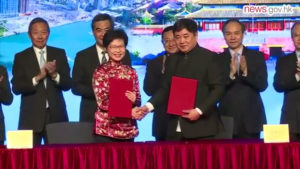
December 2016: Carrie Lam announces plans for a Hong Kong Palace Museum in the West Kowloon Cultural District
Source: YouTube
The second ‘gift’ was less well received. Hong Kong’s Chief Secretary Carrie Lam 林鄭月娥 announced a few days before Christmas that Hong Kong’s new West Kowloon Cultural District will host a permanent local branch of Beijing’s Palace Museum 故宫博物馆, which will display relics on loan from Beijing. Pan-democrat politicians and media commentators decried the lack of public consultation that would usually precede a public project of this scale, as did representatives of Hong Kong’s music industry — it only became apparent with hindsight that a proposed ‘mega performance venue’ was scrapped to make way for the museum. There were also concerns that a local Hong Kong architect was awarded the contract to design the museum without any formal tender process (and that the project specifications initially required a local ‘Chinese’ architect, in breach of Hong Kong’s racial discrimination laws). A large-scale advertisement in Central MTR station for the project, depicting the Forbidden City, became a focal point for protests, against both the Hong Kong government for its handling of the project and Beijing for the Tiananmen Square crackdown of 1989. This was perhaps not the outcome Beijing had expected from the display of soft power this ‘gift’ represented.
The government responded to the concerns by launching a belated public consultation, although Chief Executive CY Leung stated at the outset that at the end of the consultation the project must, in any event, go ahead. Some commentators saw the project as intended to bolster Lam’s own candidacy for Chief Executive. Lam responded by noting that the Hong Kong Jockey Club’s charitable fund had taken full responsibility for funding the museum — thus conveniently avoiding the need for Legislative Council budgetary approval, but also implying that Hong Kongers had no reason for looking this particular gift horse in the mouth.
The past five years of the CY Leung administration have been years of confrontation and discord, with Leung’s uncompromising governance style being met with resistance and protest, prompting interventions by Beijing to try to control Hong Kong, leading to more resistance in what has become a destructive cycle. The result has been policy gridlock, social division, and a nascent ‘Hong Kong independence’ movement that did not exist five years ago. The selection of the next chief executive in 2017 offers a welcome opportunity for a much-needed reset. Whether this is realised will depend on the ability of the new chief executive to compromise and act as a bridge-builder across these divisions, and the willingness of Beijing to resist its urge to intervene, and live up to the promise embodied in the ‘One Country, Two Systems’ principle that ‘Hong Kong people govern Hong Kong’.


